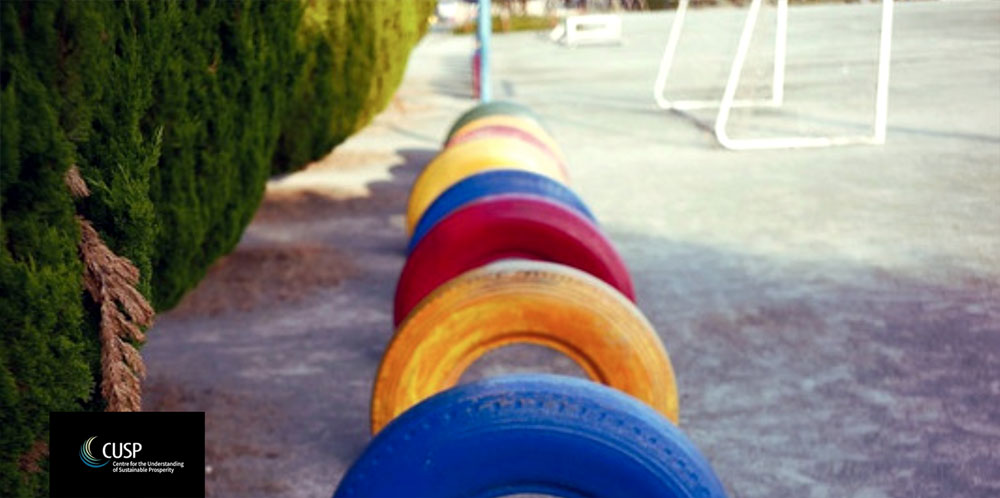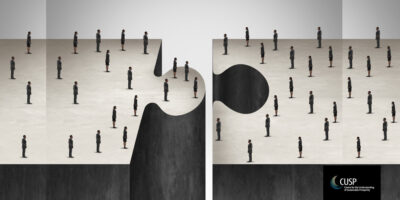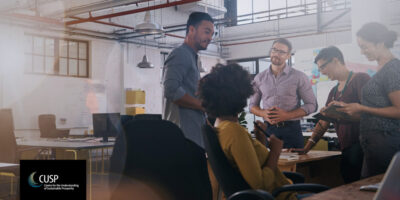Disrupting the idea of waste: how social enterprises are establishing the circular economy in Lagos
There is an increasing interest in the circular economy pathway for sustainable development in the Global South. CUSP researcher Adeyemi Adelekan reports from his research that investigates how social enterprise are establishing circular principles in Lagos Nigeria, highlighting how huge of a task it is with a variety of barriers stemming from outdated perceptions and misconceptions about waste.
Blog by ADEYEMI ADELEKAN

Africa’s fast-growing regions such as Lagos Nigeria need to rethink how they see, handle, or manage waste. The state generates up to 12 000 tonnes of waste per day, with only about 40% of it collected through the central waste management system, majority of which are either landfilled or incinerated. I wrote before about how the huge waste is generated and poorly collected negatively impacts on people and the environment. Several studies have already highlighted the substantial economic costs that result from poor sanitation, particularly in countries of the global south.
This huge waste challenge coupled with the social and environmental impact from Covid-19, has led the Lagos state government to pro-actively consider circular economy concepts as a way to develop differently and build back better. In a circular economy, waste is treated as a resource that can either be reused or recycled, thereby generating simultaneous economic and environmental benefits from keeping material resources in a productive loop and away from burdening the environment. The government hopes to capitalize on the abundance of waste being generated to also create wealth opportunities for its people, signalling an additional social motivation.
Such moves towards the circular economy mirrors the top-down approaches that have been witnessed in other African countries and cities. Government interventions that explicitly integrate circular principles into sustainable development and/or green growth plans are seen across the Sub-Saharan continent. Most of the policy directions involve banning the production or import of single-use plastics and making producers accountable through extended producer responsibility schemes (EPR). Nigeria for example has one of the most robust EPR regulatory frameworks in Africa, covering a great variety of materials and sectors. Accountability and appropriate infrastructure, however, still make progress slow. In addition, moving from a linear to a circular economy does not only require changes in law and regulations, but also a change in mentality i.e., the norms and belief systems that come with decades of being part in the take, make, and dispose linear economic system.
Top-down policy approaches seldomly grasp or adequately tackle the problems associated with changing how waste is perceived and handled at the grassroot level, in communities or among households. Existing studies have highlighted the important but often neglected role consumers play as enablers of the circular economy. It is households that determine when a product is no more useful to them and where or how to dispose of it—whether to put it onto a circular economy pathway by appropriately sorting it for recycling, or to comingle it with other waste, increasing the likelihood of it being landfilled or incinerated.
Their decision to either aggregate or sort waste can become further complicated if infused with traditional or religious beliefs that keep them from doing so. This is where a movement of entrepreneurs in Nigeria come in that are the focus of my work. As showcased in a study by Adesuwa Omorede, a key motivation for social entrepreneurs to start their enterprise in Lagos is to counter widespread ignorance and false traditional beliefs that have played into aggravating behaviours among people. My research into the strategies of social enterprises in Lagos shows how much of a challenge norms and belief systems pose towards establishing circular principles in a hugely populated and culturally diverse Lagos society. To make recycling or upcycling possible, these enterprises are always confronted with the need to disrupt the idea that people have of waste, which historically and culturally has a negative connotation.
My research shows that entrepreneurs have to devise creative means to transcend strongly held narratives, to make people realise that waste has value; that waste is not in itself evil for example, and does not attract poverty; that the ocean is not self-cleaning; that there are no water or ocean deities that magically return the waste dumped into it; that littering is not culturally acceptable; that it is not only the government’s responsibility to clean-up the environment; that waste work is not a demeaning but an essential job; and that waste does truly pollute the ocean. These are just some of the normative and cognitive barriers that social enterprises encounter and have to deal with as they try to encourage people to sort their waste for recycling or to clean-up and recover recyclables from their environment.
The enormity of this challenge for the circular economy becomes clearer when further differentiated and contextualised. My case studies reiterate a strong link between poverty and consumption behaviour as the disregard and negative perception of waste are found to be most prevalent in low-income communities, where majority of Lagos’s population are situated (about 66% of the population are reportedly poor and live in slums). Richer communities aren’t automatically better recyclers either. My research shows that while those from the few rich neighbourhoods across the state are better equipped, more aware and willing to recycle their waste, they are limited by a different set of barriers: their perception of time constraints and storage spaces to act the part. These findings further demonstrates that individual contexts come with their own challenges, which in turn has multi-layered implications for any circular economy approach.
There has been a lot of emphasis on education to address common misconceptions and to create the necessary awareness for circular principles, with little clarity though on what that should entail. Sensitizing the public through a media buzz or organizing big circular economy events are simply not enough and are not quite equipped to reach or resonate with people in poverty. Evidence from my research suggests that to change how waste is perceived or handled, such education needs to be more experiential in its approach as individuals are more likely to change their waste-related behaviours if they experience, first-hand, the type of value that can be created from waste. To someone in dire living conditions, a slogan like “waste is value” means literally nothing. The value has to be made tangible, the value creation process needs to be exemplified, the transformed output from waste needs to be touchable.
My research demonstrates how social enterprises are creating new experiences in Lagos through effective collection, trading, and incentive systems that rewards people for kilograms of waste they collect. Some are also showcasing upcycled products, training people about the upcycling process, or opening public spaces that are beautifully decorated with discarded materials, all to challenge people’s orientations about waste. Through these creative and practical ways, they are establishing a new culture, where waste is seen and handled differently in Lagos. Together with key stakeholders across the waste supply chain—including informal collectors— social enterprises engage in creating new infrastructure and means to enable waste value creation in inclusive and mutually beneficial ways.
There are many remaining challenges that limit the capabilities of these social enterprises in Lagos, such as the high cost of logistics, lack of appropriate skillsets, and limited government as well as private sector support. Balancing commercial with environmental sustainability is also a big task for any enterprise. How to increase financial margins without increasing one’s carbon footprint from the logistics of trading waste is one of many challenges to overcome. Despite all that, these exemplary entrepreneurs with their vital social agenda are soldiering on and leading the way to make the message of “waste is value” relatable and actionable to those crucial stakeholders that policy approaches mostly fail to reach. This aspect of their work needs to be taken into consideration and amplified in future circular economy conversations for Lagos, and possibly, for other low and middle-income countries.
Link
A summary report that goes into a bit more detail on the strategies of social enterprises in Lagos and other aspects of Adeyemi’s research is available for download in pdf.



